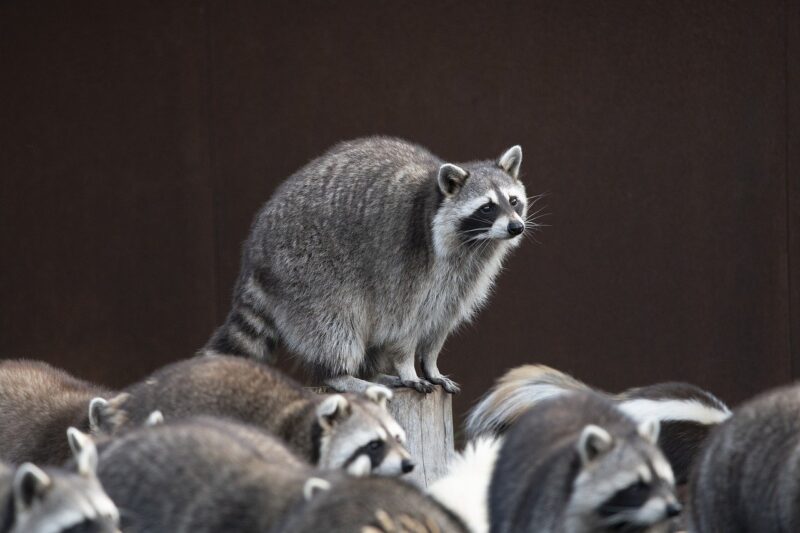Wildlife Wonders: Exploring the Unexplored Corners of Nature
November 18, 2024

Nature has a way of captivating our thoughts and instilling a sense of wonder in our hearts. While we often hear about the beauty of the most famous national parks and wildlife reserves, there exist unexplored corners of our planet brimming with biodiversity, species yet to be identified, and breathtaking landscapes untouched by human footprints. Join us on a fascinating journey as we delve into some of these wildlife wonders, revealing the ecological importance and the breathtaking sights that await in the remote corners of nature.
1. The Importance of Exploring Unexplored Areas of Nature
Understanding why it’s vital to explore these lesser-known regions starts with the acknowledgment that every ecosystem plays a crucial role in maintaining the Earth’s health. Many undiscovered areas host unique flora and fauna that contribute to biodiversity, which in turn supports global ecological balance.
Moreover, these regions can help scientists understand evolutionary processes, ecosystem functioning, climate change impacts, and even potential medicinal resources that humans have yet to tap into. Simply put, exploring unexplored areas can yield discoveries that could potentially lead to significant advancements in science and conservation efforts.
2. Unexplored Corner: Madagascar’s Rainforests
Madagascar, an island nation off the southeast coast of Africa, is home to one of the world’s most diverse ecosystems. Approximately 90% of wildlife here can’t be found anywhere else on the planet. The rainforests, encompassing areas such as Andasibe-Mantadia National Park, are particularly vital sanctuaries for unique species including lemurs, baobab trees, and chameleons.
Despite its abundant biodiversity, parts of Madagascar remain unexplored due to limited access and resources. Conservation efforts here are crucial as deforestation and habitat loss threaten these incredible species. By promoting eco-tourism, we can help fund research and protect these ecosystems while allowing visitors to witness nature’s wonders.
3. The Mysteries of the Amazon Basin
The Amazon Rainforest is often referred to as the lungs of the Earth, but it’s also one of the most enigmatic regions left on our planet. Stretching over 5.5 million square kilometers, the Amazon is still home to tribes and species unknown to science. The remarkable biodiversity includes creatures such as the Amazonian pink river dolphin, the jaguar, and myriad insect species.
Despite its significance to climate regulation, the Amazon faces looming threats from deforestation, illegal mining, and climate change. Scientific expeditions into unexplored areas can reveal species that have adapted uniquely to life in this vibrant ecosystem and can aid in preserving genetic diversity critical for ecological resilience.
4. Hidden Treasures of Papua New Guinea
Papua New Guinea is an unspoiled paradise with vast rainforests and rich marine environments. The coral reefs along its coasts, especially in regions like Milne Bay, are among the richest in biodiversity. There, divers can encounter some of the world’s most colorful fish and corals.
Inland, the highlands cradle species like the bird of paradise and various marsupials that have remained isolated from the rest of the world for eons. The cultural heritage here is just as diverse, with over 800 indigenous languages. Much of this region remains unexplored due to its challenging geography, presenting a unique opportunity for researchers and adventurers alike to uncover hidden wildlife wonders.
5. The Sea of Cortez: A Marine Wonderland
The Sea of Cortez, lying between the Baja California peninsula and mainland Mexico, has been dubbed “the world’s aquarium” due to its astonishing marine biodiversity. Here, the waters are populated with an intricate web of life, from whale sharks and sea lions to vibrant coral reefs.
Areas such as Cabo Pulmo are often overlooked in favor of the more popular tourist spots. These underwater wonders harbor numerous species yet to be studied, and ongoing conservation efforts promote sustainable fishing and eco-tourism to protect this delicate ecosystem. Explorations into these depths can unveil the interconnectedness of marine life and the significance of preserving our oceans.
6. The Arctic: An Icy Wilderness
The Arctic is often associated with polar bears and icebergs, but its cold landscapes hide many unexplored realms featuring unique wildlife such as seal species and migratory birds. Research expeditions into the Arctic regions are not only key to understanding climate change but also uncover hidden biodiversity in these extreme environments.
In places like the Norwegian archipelago of Svalbard, scientists still uncover new species and behaviors every year. Ecosystem interdependencies, along with studies concerning how wildlife adapts to drastic climate changes, take on vital importance in these pristine yet increasingly vulnerable areas.
7. Conservation Efforts and Responsible Exploration
As we focus on exploring these untouched corners of nature, we must emphasize responsible exploration and conservation efforts. Tourism often brings awareness and funding to protect these regions, but it can also contribute to environmental degradation if not managed properly.
Organizations worldwide are working to promote sustainable tourism practices that benefit local communities and preserve the ecological integrity of these wilderness areas. Engaging local populations in conservation efforts strengthens preservation and often reveals traditional ecological knowledge that scientists can learn from.
Conclusion
Exploring the unexplored corners of nature is not just about adventure; it’s about understanding the profound interconnections between life forms and their habitats. Each undiscovered species, habitat, and ecosystem contributes uniquely to our planet’s health and, ultimately, our survival. By advocating for exploration and scientific inquiry, while also prioritizing conservation efforts, we can make strides toward a sustainable future. So, pack your bags, embrace the wild, and prepare to witness the incredible wildlife wonders that await in the unexplored corners of our world.
Keep exploring, keep learning, and above all, keep advocating for the nature that so profoundly affects us all.








